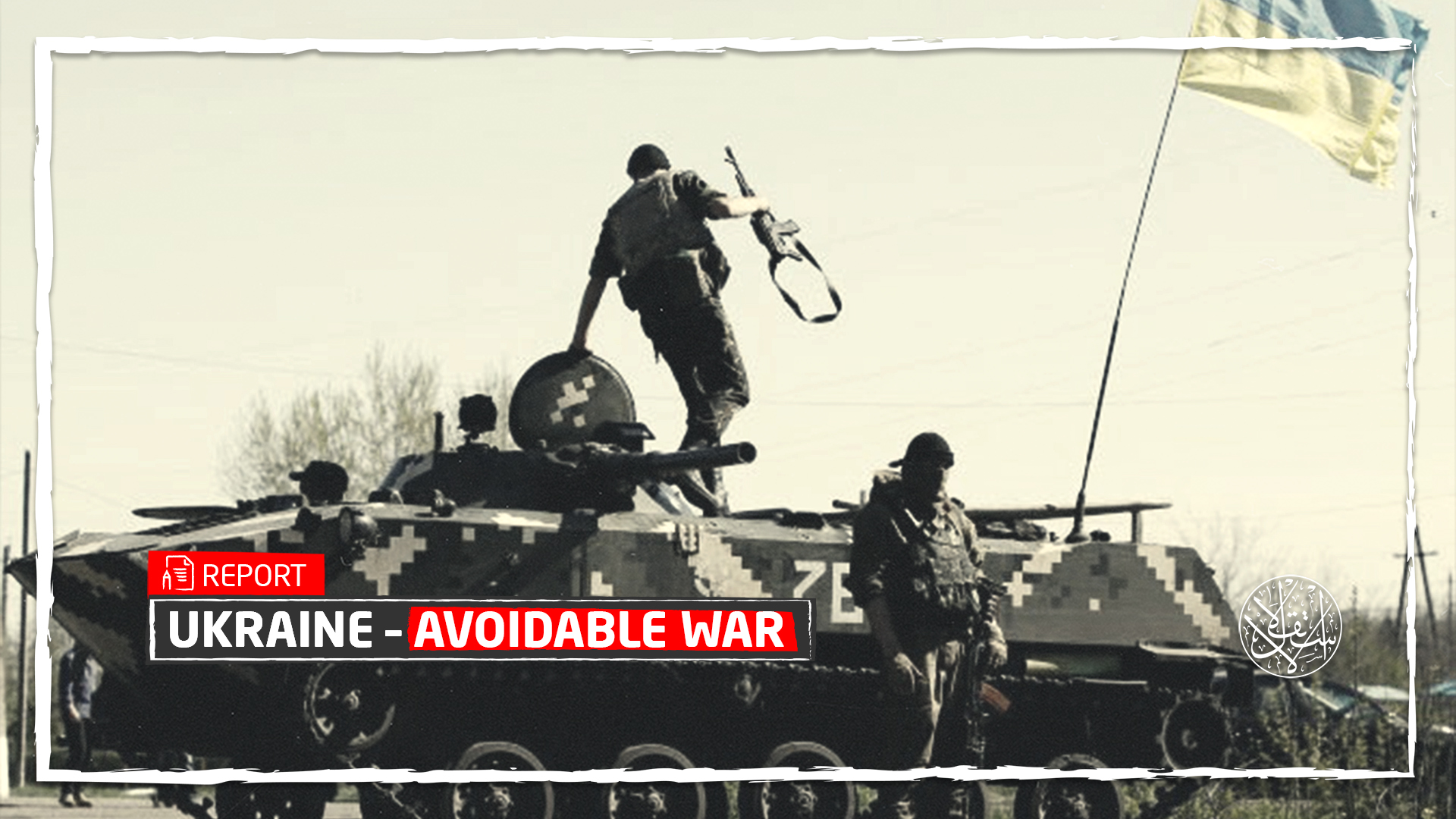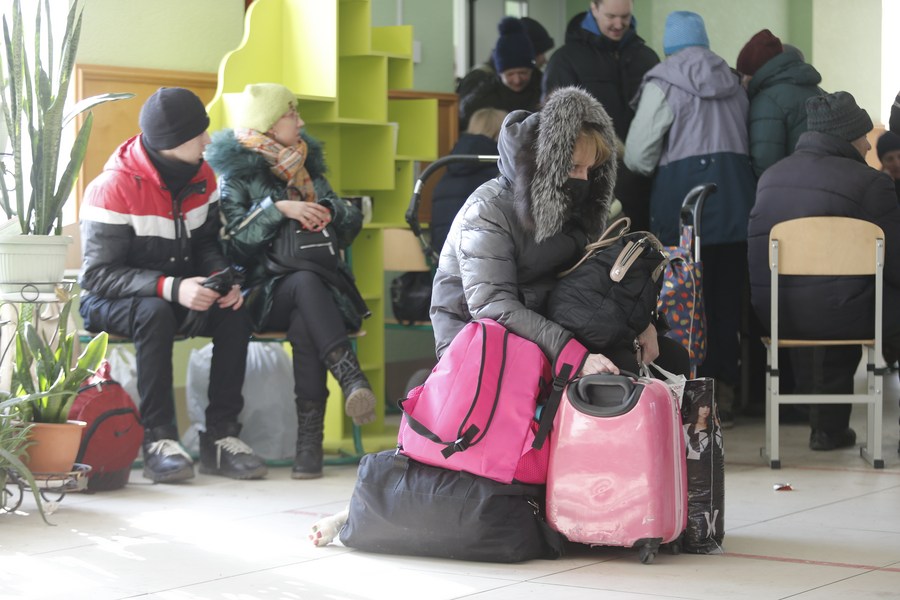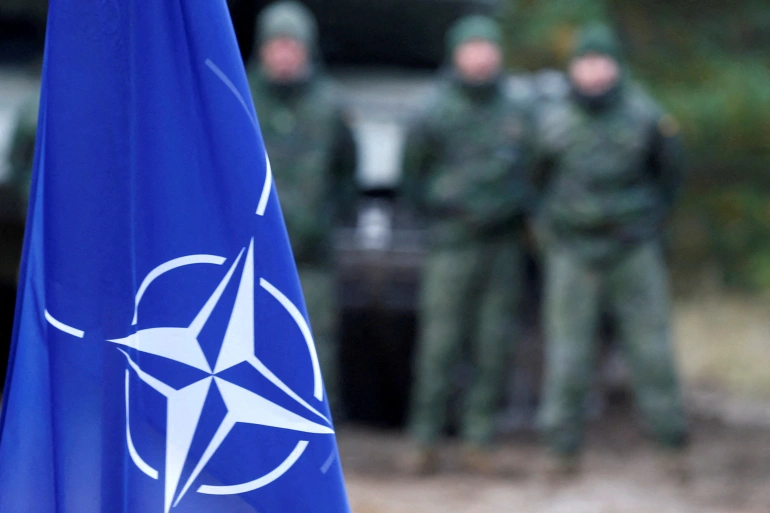How the War on Ukraine Could Have Been Avoidable?

During the recent rounds of negotiations between Russian and Ukrainian officials, in an attempt to stop the war the Russians have been waging against their neighbor for weeks, the issue of Ukraine adopting a "neutral" model was raised, and the Russians set the Swedish model as an example.
The Russian presidential spokesman Dmitry Peskov explained that "Ukraine's neutrality in the style of Sweden or Austria is the option currently being discussed, which could be considered a settlement."
Many researchers have spoken about the US and NATO’s faults and how they could avoided this war with clear and simple methods
Posed Threats
US political scientist John J. Mearsheimer is one of the most mentioned figures when the talk on US faults is raised.
In a recent interview with The New Yorker's Isaac Chotiner, Mearsheimer's equation of explanation and justification comes into focus.
According to Mearsheimer, the US sowed the seeds of the war with Russia by pressing Ukraine to join NATO and the EU, hence "transforming Ukraine into a pro-American liberal democracy."
“Saying that America will not allow countries in the Western hemisphere, most of them democracies, to decide what kind of foreign policy they have — you can say that’s good or bad, but that is imperialism, right? We’re essentially saying that we have some sort of say over how democratic countries run their business,” Mearsheimer said.
"As Mr. Lavrov noted in January, 'the key to everything is the guarantee that NATO will not expand eastward,'" he added.
In a recent opinion article published in The Economist, Mearsheimer noted that the West, and especially America, is principally responsible for the Ukraine crisis,
The Ukraine crisis began during NATO's Bucharest summit in 2008, when George W. Bush's administration urged the alliance to declare that Ukraine and Georgia "shall become members," according to the article.
According to Mearsheimer, in late 2021, the West overlooked Russia's security concerns in order to include Ukraine in NATO, which immediately led to the current crisis.
Furthermore, Russian officials have said "nothing about conquering new territory to restore the Soviet Union or establish a stronger Russia," according to the expert, who added that Russian authorities have frequently stated that Ukraine joining NATO is an "existential threat that must be avoided."
Lack of Strategy
Alexander Vindman, a retired US Army lieutenant colonel and the former director for European affairs for the National Security Council, presented another point of view.
In his article published in The Atlantic titled “America Could Have Done So Much More to Protect Ukraine,” Vindman sees that even if this conflict was foreseeable, that does not mean it was inevitable.
For example, President Biden clearly said in early December that he would not send American soldiers to fight in Ukraine, removing any potential of strategic ambiguity.
The United States might have declined to clarify its security obligations to Ukraine, as it has done for decades with Taiwan. The implied threat of US and NATO action would have compelled Putin to consider the consequences of further escalation.
“Instead, Biden granted Putin a free hand,” Vindman wrote.
The US also declined to release modern weapon systems to Ukraine, such as Patriot anti-aircraft missiles or Harpoon anti-ship missiles, claiming that Ukraine's armed forces were insufficiently capable to operate them.
“Although Ukraine would have struggled to realize the full potential of these systems, they could nonetheless have affected Russia’s calculus for military operations,” Vindman noted.
He added that for those who believe that Russia would have invaded to prevent the shipping of weapons, “I would contend that if invasion was already the predicted outcome, what was there to lose?”
Aside from military pressure, the United States neglected to evaluate tiered reaction alternatives after Putin's chosen course of action was determined.
The US might have placed targeted sanctions on Russian elites or enacted long-overdue anti-corruption legislation to underscore to the Kremlin the imminent costs of reinvasion.
By seeing these possibilities through an all-or-nothing perspective, the United States erroneously limited its reaction. Biden's administration was reactive rather than proactive.
The president's longest senior advisers appear to have repeatedly advised restricted, low-risk policy alternatives, which appear to have backfired.
NATO Responsibility
Vindman adds that after Ukraine gained independence and surrendered the world's third-largest nuclear arsenal, the West might have eased sanctions to ensure the country's economic independence.
Following the 2004 Orange Revolution, Vindman also proposes that the West might have welcomed Ukraine's Western ambitions by hastening an EU Association Agreement and a NATO Membership Action Plan, as well as driving domestic reform to protect Europe's largest country against emerging Russian revanchism.
Finally, following the 2014 Revolution of Dignity, the West might have engaged in a strategic security alliance with Ukraine, making the costs of a Russian attack prohibitively expensive. All of this, however, did not come to pass.
In the same context, Motofumi Asai, former director of the China and Mongolia division of Japan’s Foreign Ministry said that Washington and NATO could have prevented the Ukrainian crisis if they had accepted Russia's security proposals and allowed Ukraine to remain a buffer zone.
"The United States and NATO are the main culprits in the Ukraine crisis," Motofumi Asai said during an online seminar of the Taihe Institute on the impact of the Russian-Ukrainian conflict on the situation in East Asia.
The main reason for the conflict between Russia and Ukraine is the irrational promotion of NATO's expansion to the East. "The Russian-Ukrainian conflict could have been avoided if the United States and NATO had accepted Russia's security proposals and ensured that Ukraine would continue to be a strategic buffer zone for Russia," he added.














